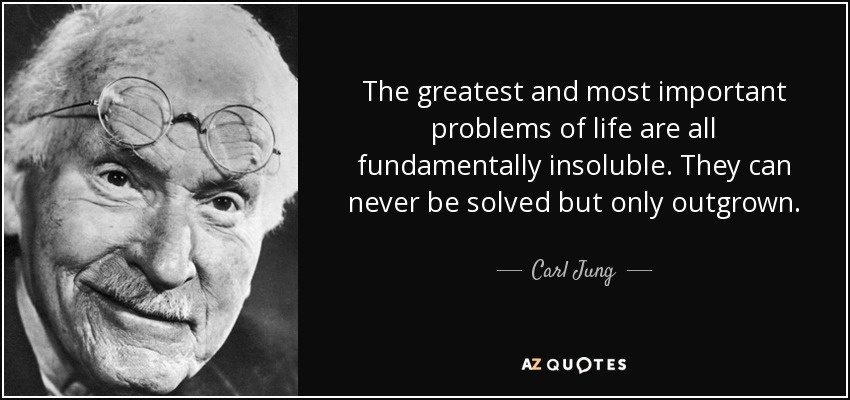I mentioned in my previous post that I finished reading “Wild Problems” by Russ Roberts. What I did not mention is how Stephen Stigler’s new book “Casanova’s Lottery,” which I also recently read, influenced my reading of Wild Problems. In brief, Roberts’s beautiful book focuses on problems that are not amenable to economic analysis or rational choice models. (Alas, this is not a new insight; by way of example, see the Carl Jung quote pictured below.) Take, for instance, such transformative decisions like where to go to college, who to marry, or what career to pursue. According to Roberts, these types of life-changing decisions are “wild” or insoluble. But are they? By way of comparison, consider the decision whether to buy a lottery ticket. Although the expected value of a lottery ticket is always going to be negative because, as they say in Las Vegas, “the house always wins,” the expected utility of that same ticket might actually be positive–i.e., the pleasure I get at the thought that I might win a big payday is greater than the cost of a ticket. Likewise, there is no reason in principle why can’t we apply this same expected utility framework to Russ Roberts’s laundry list of “wild” or insoluble problems: college, marriage, career, etc. Worse yet, even if Roberts is right that such life-changing decisions fall outside the rational choice paradigm of game theory and economics, his book does not provide any real guidance for how to make such decisions. Nevertheless, I still recommend “Wild Problems” because Russ Roberts is a great writer. His discussion of the vampire problem and the annotated bibliography, where Roberts traces his own intellectual development, are especially worth reading.




Simply “making a decision” often adds “utility” regardless of what is chosen, as taking a lot of time to decide has opportunity costs and possible negative psychological costs.
Our library has *finally* made a copy of this book available, and I will be picking it up tomorrow.
Awesome!
I’ve finished reading Wild Problems — sort of skated and sailed over the last half or so, to tell the truth. Some good nuggets within, but thought it was more a long-form Atlantic Monthly article than a book. I venture to disagree with you that Roberts made no suggestions how to deal with “wild” problems — I think it boiled down in the end to his “Be Like Bill (Belichick)” chapter, i.e., try things, try lots of things, increase the number of choices you have and set aside thoughts that you can actually find “the best” solution. He offered a life strategy rather than an algorithm.
Interestingly, this was one of those “right books at the right time” for me, as it echoed many of the points that I have been talking to my therapist about. Would have actually been more helpful for me several months ago, but it is nonetheless reinforcing now.
well said; by the way, wild problems is in my reading pile!